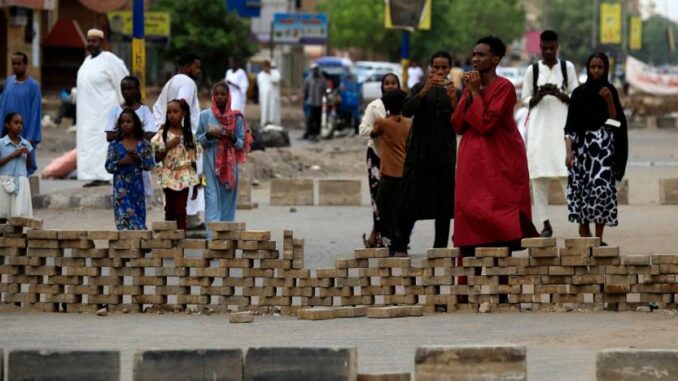
The organizers of the sit-ins launched ten days ago in Khartoum to force the army to return power to civilians, announced Monday to have dismantled two of their four camps in the Sudanese capital.
On June 30, a symbolic day in Sudan since it marks the anniversary in 1989 of the coup of dictator Omar al-Bashir, who was overthrown 30 years later in April 2019 under pressure from the street, security forces killed nine anti-power protesters, according to pro-democracy doctors.
The next day, shocked by the violence of the repression, the activists declared “unlimited” sit-ins to finish with the military.
And they set up four camps: two in central Khartoum, one in the northwestern suburb of Omdurman and one in the northeastern suburb of Khartoum North.
After four days of mobilization, General Abdelfattah al-Burhane, the author of a putsch in October 2021 that dislodged civilians and interrupted the transition to democracy, announced that he wanted to give way to a civilian government. Without convincing the street, which saw it as a “tactic” to impose fallible and vested civilians on the army and to maintain a Supreme Council of the Armed Forces alongside the government, which could keep the upper hand on politics and the economy.
Parties, trade unions and civil society organizations said they were organizing to push the military off the stage. And the protesters said they would “not leave until a civilian-only government is announced”.
But on Monday, as Sudanese celebrated the Muslim holiday of Adha, the Omdurman “resistance committees” announced that they were breaking camp in their area.
The resistance committees are neighborhood groups that have been organizing protests since the 25 October coup. They are the most listened-to force in the street and had previously criticized the civilian parties for compromising by agreeing to govern hand in hand with the military.
